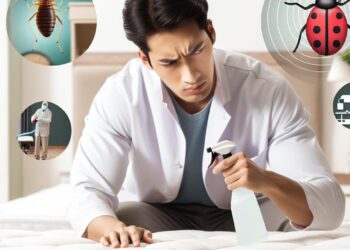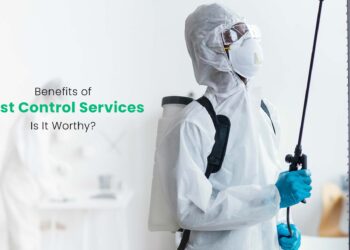Protecting Food Quality and Safety through Effective Pest Control Measures
Introduction:
Pest control is an essential component of food safety and compliance with regulatory standards. The presence of pests in food production and storage areas can lead to contamination, spoilage, and even foodborne illnesses. The purpose of this article is to discuss the role of pest control in ensuring food safety and complying with regulatory standards.
The Importance of Pest Control in Food Safety:
Pests such as rodents, insects, and birds can contaminate food products with their feces, urine, and other bodily fluids. This can lead to the spread of harmful pathogens such as Salmonella, E. coli, and Listeria, which can cause serious illnesses in humans. Additionally, pests can damage food packaging, storage containers, and equipment, leading to spoilage and financial losses for food businesses.
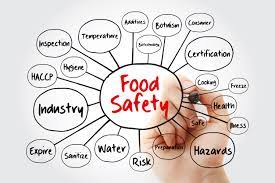
The Regulatory Standards for Pest Control:
In the UK, food businesses are required to comply with the Food Safety Act 1990 and the Food Hygiene Regulations 2006, which mandate the implementation of pest control measures. These regulations require food businesses to have effective pest control procedures in place and to regularly inspect and maintain their premises to prevent pest infestations.
Effective Pest Control Measures:
To effectively control pests in food production and storage areas, businesses should implement an integrated pest management (IPM) approach. This involves a combination of preventive measures such as maintaining a clean and hygienic environment, sealing off entry points for pests, and using pest-resistant materials. Additionally, businesses can use physical and chemical control methods such as traps, baits, and insecticides to eradicate pests.
The Importance of Regular Inspections and Monitoring:
Regular inspections and monitoring are essential for detecting and preventing pest infestations. Food businesses should conduct inspections of their premises at least once a month and keep detailed records of their pest control activities. Additionally, businesses should train their staff on the importance of pest control and how to identify signs of pest activity.
The Role of Professional Pest Control Services:
While some food businesses may attempt to manage pest control on their own, professional pest control services can provide a higher level of expertise and knowledge in controlling pests. A professional pest control company can offer tailored solutions to specific pest problems and help businesses to stay up to date with changing regulations and best practices.
In addition, professional pest control services can provide businesses with comprehensive pest control reporting, allowing them to track and document pest control activities to meet regulatory requirements. This can also help businesses to identify trends in pest activity and take proactive measures to prevent infestations.
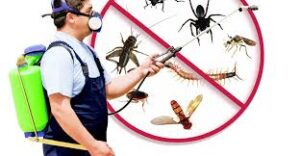
The Cost of Poor Pest Control:
While implementing effective pest control measures may require an investment of time and resources, the cost of poor pest control can be much higher. Pest infestations can result in product recalls, loss of business reputation, and legal liabilities if customers become ill due to contaminated food products.
In addition, regulatory non-compliance can result in fines and legal action against businesses. Therefore, investing in effective pest control measures is essential for protecting both the health and safety of customers and the financial well-being of businesses.
Benefits of Effective Pest Control:
Effective pest control measures can provide several benefits for food businesses beyond just compliance with regulations. These benefits include:
- Protecting business reputation: A pest infestation can damage a business’s reputation and lead to a loss of customer trust. Effective pest control measures can help to maintain a clean and hygienic environment, demonstrating a commitment to quality and safety.
- Increasing productivity: Pest infestations can disrupt business operations, leading to downtime and lost productivity. By preventing infestations, businesses can ensure smooth operations and maintain productivity.
- Reducing financial losses: Pest infestations can result in product spoilage, property damage, and legal liabilities, leading to significant financial losses. Effective pest control measures can prevent these losses and protect the financial well-being of businesses.
- Enhancing employee morale: Working in an environment infested with pests can be unpleasant and demotivating for employees. By providing a clean and pest-free workplace, businesses can enhance employee morale and promote a positive work environment.
Implementing an Integrated Pest Management (IPM) Program:
Effective pest control in food businesses requires an integrated approach that combines preventive measures, monitoring, and control strategies. This is known as an Integrated Pest Management (IPM) program.
An IPM program involves the following steps:
- Inspection: Regular inspections are conducted to detect and identify pest activity and potential entry points.
- Prevention: Preventive measures are implemented to reduce the likelihood of pest infestations. This includes keeping the environment clean, ensuring proper storage and waste disposal, and sealing off entry points.
- Monitoring: Ongoing monitoring is conducted to detect pest activity and identify changes in pest populations or behavior.
- Control: If pests are detected, control strategies are implemented to eradicate the pests while minimizing harm to the environment and non-target organisms.
- Evaluation: The effectiveness of the IPM program is evaluated to identify areas for improvement and ensure ongoing compliance with regulations and best practices.
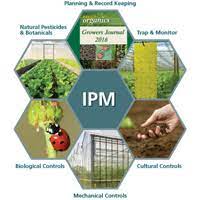
Implementing an IPM program requires a commitment from food businesses to prioritize pest control and allocate the necessary resources to prevent and control pest infestations.
Training Staff on Pest Control:
In addition to implementing an IPM program, training staff on pest control is essential for maintaining a pest-free environment. Staff members should be trained on the following:
- The importance of pest control and how pests can affect food safety and quality.
- How to identify signs of pest activity and report any sightings immediately.
- How to properly store and dispose of food waste to prevent pest infestations.
- The proper use of pest control equipment and materials, such as traps and insecticides.
- The importance of maintaining a clean and hygienic environment to prevent pest infestations.

Conclusion:
Effective pest control is an essential component of food safety and compliance with regulatory standards. Food businesses must take proactive measures to prevent pest infestations, such as implementing integrated pest management strategies, conducting regular inspections and monitoring, and investing in professional pest control services.



